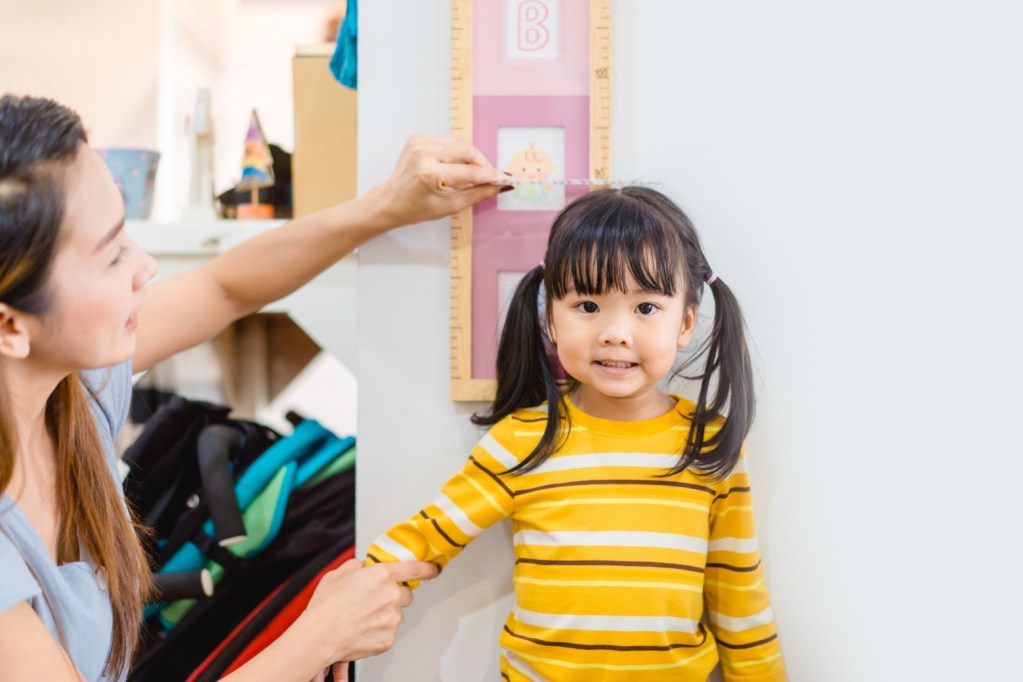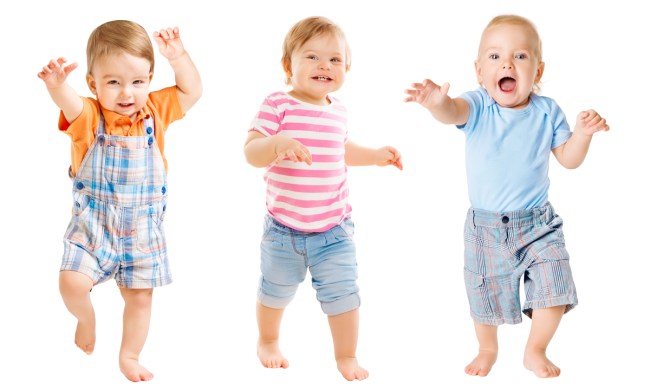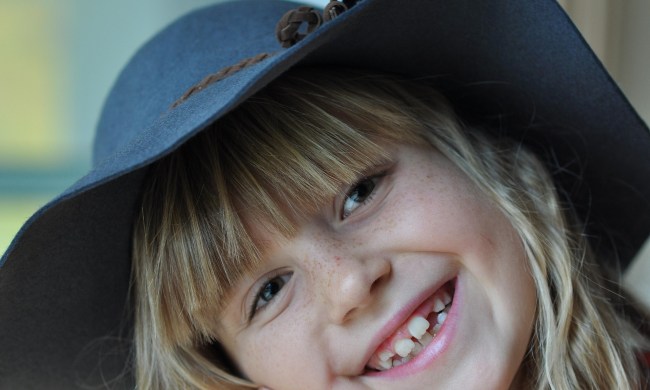Every parent’s nightmare and proud moment combined is when their child gets as tall as them. And you know every kid cannot wait to brag about how they are the same height as their parent. But it may happen faster with your daughter than with your son. You might notice your little girl catching up to your height quicker than you’d like. When do girls stop growing? If you have a daughter, here is when she will be finished towering over you.
When girls stop growing

A female’s growth is directly related to when they go through puberty. Since that is different for everyone, we’ll do an average age. Most girls will stop growing by the time they are 15 years old.
Girls will have a larger and longer growth spurt around the time they develop breasts, and it ends about six months before they start menstruating. The time between those milestones is about two years. Once a girl gets her period, the growth slows way down. She might see another couple of inches in height after that, but anything more is rare, and she might not even grow much after menstruation starts.
Why do girls grow so early?
Females are starting their periods earlier than ever, which means their growth spurts are happening at a younger age. Puberty hits girls as young as 10 years old, with a spread of 8 to 13 years old. Females are done with puberty around two to three years later when they get their first period.
The average age for a girl to start menstruating is 12.2 years old. Outside factors could make this earlier or later, and race does play a part in moving the age a bit. But if your daughter hasn’t developed breasts by 13 years old and hasn’t had a period by the time she is 15, she could go through delayed puberty. On the other side, girls as young as 8 years old could go through precocious puberty, which is early puberty and is more common for girls than for boys.
How to know when your daughter is done growing

Being fully finished with puberty will let you know your child is done growing, and there will be hints to pick up on.
The signs a child is done
- Breasts are developed.
- Underarm, pubic, and body hair (legs and arms) has fully grown in.
- Yearly checkups show slowed or no growth in height.
- Signs of acne and body odor, showing hormone levels are higher.
- Your child will have longer limbs, fuller hips, and a smaller waist.
- Her face looks more grown up with adult-like features.
While this may seem to all happen overnight, remember, these changes are happening in the two to three short years once puberty starts. It goes by in a blink.
You could always have tests done to know for sure if your daughter has stopped growing, but those require bloodwork and X-rays.
How to guess your child’s height

If you want to figure out your daughter’s future adult height, there is some guesswork to help. Please know that doing any of the mental math ways to calculate your daughter’s height won’t be completely accurate. It’s mostly for fun. Take the heights of both parents, subtract them, and add half the difference to the mom’s height. You could also take the father’s height, subtract 5 inches, add that height to the mom’s height, and then divide that by 2.
Average height growth by age
- Age 10 to 11 is 2.39 inches
- Age 11 to 12 is 2.84 inches
- Age 12 to 13 is 2.3 inches
- Age 13 to 14 is 1.24 inches
- Age 14 to 15 is 0.56 inches
- Age 15 to 16 is 0.26 inches
These are not exact numbers, but the averages to go by. Notice when puberty is done by 14 years old, there isn’t a whole lot of growth happening.
When to involve a doctor

Every girl will grow and develop at a different pace, but keep your eye on a few ages and milestones. Keep the doctor in the loop at yearly checkups, but don’t be afraid to make an additional appointment if you notice any of these possible issues.
Talk to a doctor if you see these happen
- No signs of puberty by the time your child is 13 years old.
- Your child hasn’t had one period by 15 years old.
- It has been three years since breast development, and she hasn’t had a period.
- Your child has severe periods with extreme cramps and heavy bleeding.
- After a full year of periods, your daughter has a continued irregular cycle.
What affects your daughter’s height?

Factors other than the height of Mom and Dad affect a girl’s height and growth.
Average height contends with these additional challenges
- Chronic illnesses, such as celiac disease or arthritis
- Certain medications
- Constant and consistent malnutrition
- Genetic disorders like Down syndrome
- Not getting proper sleep consistently
- Genetics always love to throw curve balls
One day you’re looking down at your precious little girl, and the next, she’s reaching the cabinet you can barely get to. Not that you won’t appreciate the help of having someone else reach higher areas to clean, but seeing your child’s eyes on your level is another kind of parenting milestone they don’t prepare you for. Understand how your daughter will grow to aid her along her journey and boost your child to reach their full potential — and height — all before she gets her driver’s license.




